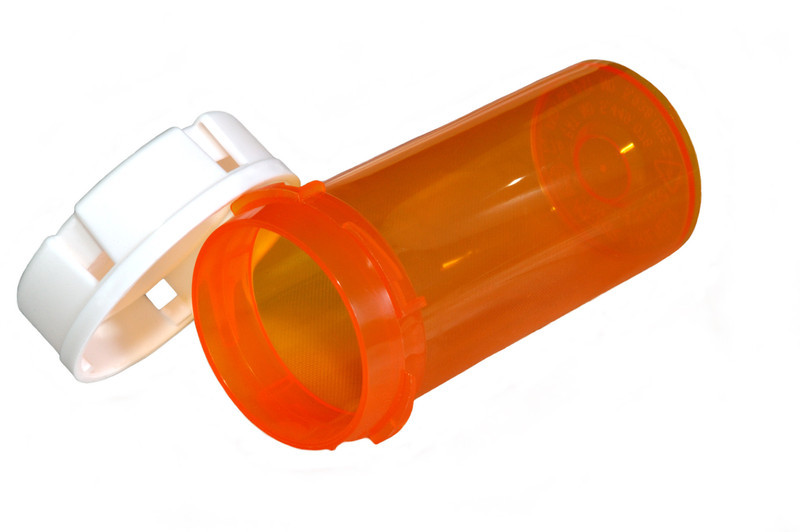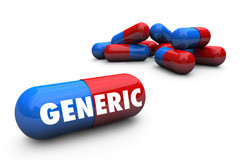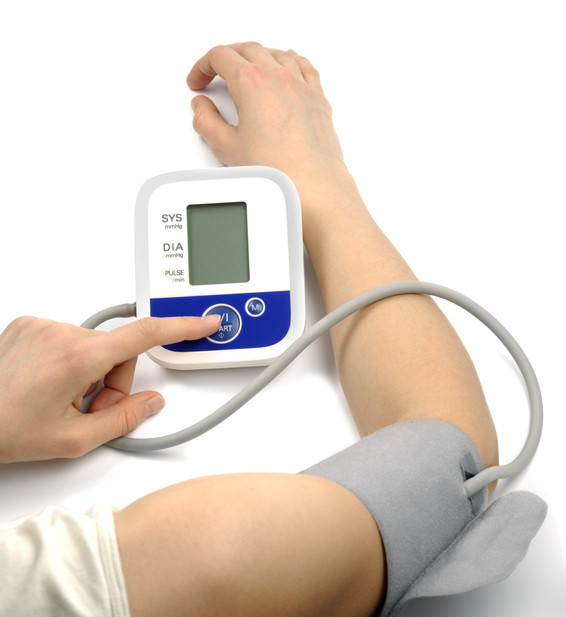
5 timeless habits for better health

What are the symptoms of prostate cancer?

Is your breakfast cereal healthy?

When pain signals an emergency: Symptoms you should never ignore

Does exercise give you energy?

Acupuncture for pain relief: How it works and what to expect

How to avoid jet lag: Tips for staying alert when you travel

Biofeedback therapy: How it works and how it can help relieve pain

Best vitamins and minerals for energy

Should you take probiotics with antibiotics?
Harvard Health Blog
Read posts from experts at Harvard Health Publishing covering a variety of health topics and perspectives on medical news.
Articles
Quick injection helps stop epileptic seizures
An epileptic seizure is a frightening thing to experience, and almost as frightening to watch. Fortunately, most seizures stop on their own after a couple minutes. Any that last longer than five to 10 minutes (doctors call a long-lasting seizure status epilepticus) are a medical emergency and must be halted with medication. A new study shows that delivering anti-seizure medication with a hand-held auto-injector—much like the epi pens used by people with life-threatening allergies—is better than delivering them intravenously. This study could pave the way for home treatment of epileptic seizures.
Pregnancy-related high blood pressure, diabetes linked to later heart disease
Most of the changes that come with pregnancy—growing a belly “bump,” being tired, mood swings, cravings for particular foods, and the like—are normal, temporary, and harmless. Two other changes, pregnancy-related high blood pressure and diabetes, may have long-lasting implications for heart health. The development of high blood pressure during pregnancy is known as preeclampsia; pregnancy-related diabetes is called gestational diabetes. They are different from “regular” high blood pressure and diabetes because both are “cured” by delivery. A new study published this week in the journal Circulation suggests that these complications boost a woman’s risk of cardiovascular disease during middle age.
Is there a link between diet soda and heart disease?
I’m a big fan of diet soda. I like the taste, and I love that it doesn’t have any calories. I can drink two or three diet sodas a day and not worry about gaining weight. But a new study has me wondering if enjoying the sweetness of soda without the sugar and calories is such a good thing after all. University of Miami and Columbia University researchers found that daily diet soda drinkers were more likely to have had a stroke or heart attack over the course of a 10-year study, or to have died from vascular disease, as folks who didn’t imbibe diet soda. My husband gently (but persistently) tells me there is nothing good about drinking diet soda, not even the taste I claim to enjoy so much. The evidence seems to be backing him up.
How drug shortages happen
Worrisome shortages of important medications—from drugs to manage the symptoms of ADHD to standard cancer drugs—have been in the headlines lately. A shortage can be frightening to the people who need a hard-to-get medication, and frustrating for the clinicians who prescribe it. Manufacturing and quality control issues are among the primary reasons for drug shortages. The FDA can sometimes help ease a drug shortage. What can you do if you are affected? Ask your doctor if another medication might work for you. Be especially wary of Internet or faxed advertisements for alternatives (often highly priced and sometimes counterfeit).
Addiction: It retrains the brain, is tougher on women
It’s hard for someone who has never battled an addiction to understand how or why a person can’t break free of one. An exchange on the radio about pop star Whitney Houston’s addictions underscores the misconceptions many people have about addiction. Addictions retrain the brain in a way that couples liking something with wanting it. There are important gender differences in addiction. Although men are more likely than women to become addicted to drugs or harmful behaviors, women who have an addiction face tougher challenges.
Sleep helps learning, memory
Sleep may be time off for the body, but it’s part of a day’s work for the brain. During sleep, the brain is hard at work processing the events of the day, sorting and filing, making connections, and even solving problems. New research suggests that dreaming can improve memory, boost performance, and even improve creativity. Naps have been shown to improve recall. Napping won’t make you smart or assure success, but it can help improve your memory and solve problems. Sleeping well at night, and long enough, is associated with good health. The combination is a two-step approach that should give everyone something to sleep on.
The science behind “broken heart syndrome”
Media reports describing “broken heart syndrome” often lump together two completely different conditions. One is stress cardiomyopathy, sometimes known as takotsubo cardiomyopathy. The other is myocardial infarction, better known as a heart attack. A huge sudden stress—like news that a loved one has died, experiencing an earthquake, or learning that your accountant has stolen all of your retirement savings—unleashes a torrent of stress hormones that can trigger one of those conditions. Stress cardiomyopathy is a weakening of the left ventricle, the heart’s main pumping chamber. Over the course of a week or longer, the left ventricle tends to recover its pumping power. Heart attacks occur when something—usually a blood clot—blocks blood flow to part of the heart muscle.
Natural recoverers kick addiction without help
We tend to think that stopping an addictive behavior means joining a group, seeing a therapist, going to a treatment center, or taking a medication that helps with cravings. Some people manage to break an addiction without any help. These “natural recoverers” tend to take two key steps: They find a new hobby, challenge, or relationship to help fill the void left by the addiction. And they start exercising. Exercise is important because it acts as a natural antidepressant. It also prompts the body to release its own psychoactive substances—endorphins—that trigger the brain’s reward pathway and promote a feeling of well-being. Natural recovery isn’t a sure thing, and the more severe the addiction, the harder it is to do.
New anti-lice lotion is good news for nitpickers
ARCHIVED CONTENT: As a service to our readers, Harvard Health Publishing provides access to our library of archived content. Please note the date each article was posted or last reviewed. No content on this site, regardless of date, should ever be used as a substitute for direct medical advice from your doctor or other qualified clinician. […]
The 11 most expensive medications
Some medications can cost as much as $2,000 a year. But according to a post on the Medical Billing and Coding blog, that’s peanuts. The price tag for a year’s worth of Soliris, a drug used to treat a rare blood disease known as paroxysmal nocturnal hemoglobinuria, is $409,500. The blog lists 10 other drugs that cost $200,000 or more a year. All 11 are so-called orphan drugs, developed specifically to treat rare conditions. The post raises questions about how much is too much when it comes to drug costs. If one of these drugs is keeping you or a family member alive, the sky’s the limit. If not, the cost can seem excessive.
Everyday foods are top 10 sources of sodium
A new report from the Centers for Disease Control and Prevention (CDC) shows that just 10 types of deliver almost half of the average American’s daily sodium. Topping the list are breads and rolls, cold cuts, pizza, poultry, and soups. Almost two-thirds of our daily sodium comes from food bought in stores, and one-quarter comes from food bought in restaurants (which includes fast-food shops and pizza places).The report also showed that Americans take in an average of 3,266 milligrams of sodium a day (about 1½ teaspoons of salt), well above the healthy target of 2,300 milligrams a day. As a nation, cutting back on salt by an average of 400 milligrams a day could prevent 28,000 deaths a year and save $7 billion in health care costs.
Switching to generic Lipitor
Lipitor, the blockbuster cholesterol-lowering drug, is now being sold as a less-expensive generic. Several other best-selling prescription drugs are set to lose patent protection this year, including Actos, a diabetes drug; Plavix, which helps prevent heart attacks and strokes; and Singulair, an important asthma drug. Although the lower price is great, some people worry that changing from a brand-name drugs to a “no-name” generic one might be risky. Not so, says Dr. Anthony Komaroff, editor in chief of the Harvard Health Letter. In the newsletter’s February 2012 issue, he tackles the brand-versus-generic issue. The FDA is legally required to determine that generic products are “bioequivalent” to brand-name drugs, which means that they produce similar blood concentrations of the same chemical. The vast majority of studies show that generic versions are just as safe and effective as their brand-name counterparts.
FDA needs stronger rules to ensure the safety of dietary supplements
Back in 1994, the Dietary Supplement Health and Education Act (DSHEA) allowed companies to sell dietary supplements with established ingredients (meaning those that had been sold in the United States before 1994) without any evidence that they are effective or safe. Manufacturers are supposed to give the FDA evidence that a new ingredient should be safe, but this aspect of the law hasn’t been enforced, writes Harvard Medical School’s Dr. Pieter A. Cohen in a commentary in the New England Journal of Medicine. Compare this hands-off approach with the strict rules and regulations for drugs. Last July, the FDA proposed some rules to help it test new dietary supplements. This is a good first step, but the FDA’s plan doesn’t go far enough, argues Dr. Cohen.
Older women may need fewer bone tests
The bone-thinning condition known as osteoporosis can be a big problem for older people. That’s why older folks are urged to have their bones checked with a test that measures bone density. Exactly how often to have the test hasn’t yet been set. By following 5,000 older women for almost 17 years, researchers found that the timing of the next bone mineral test should depend on the result of the current one. People who get a normal result can wait 15 years, those with moderate osteopenia should have the test every five years, while those with severe osteopenia should have it every year.
When are obsessions and compulsions in children a problem?
It is normal for children at some points in their development to be concerned about sameness and symmetry and having things perfect. But when such beliefs or behaviors become all-consuming and start interfering with school, home life, or recreational activities, the problem may be obsessive-compulsive disorder (OCD). Obsessions are irrational thoughts, images, and impulses that a person feels as unrealistic, intrusive, and unwanted. To relieve the anxiety caused by these obsessions, a youth may engage in compulsive rituals. Two main types of treatment are used to help youths better manage OCD: a form of talk therapy known as cognitive behavioral therapy, and medication. The ideal approach is to try cognitive behavioral therapy before turning to medication.
Chefs, nutrition experts give the low-fat muffin a makeover
Most store-bought muffins deliver the same wallop of highly processed flour and sugar as donuts. Low-fat versions may actually be worse, since they contain extra sugar and salt. To restore the muffin to its rightful place as a healthy breakfast or snack option, chefs and dietitians from the Culinary Institute of America worked on a muffin makeover with nutrition experts from the Harvard School of Public Health (HSPH). They created recipes for five muffins: blueberry, cranberry orange, jalapeno cheddar corn, lemon chickpea, and banana nut. The team replaced half of the white flour with whole wheat or other whole-grain flours, used heart-healthy oils in place of some or all of the butter, added nuts when possible, and cut the size of the muffins.
Limiting antibiotic use in farm animals will help reduce antibiotic resistance
The U.S. Food and Drug Administration has ruled that farmers must limit the use of antibiotics called cephalosporins to prevent infections in seemingly healthy cows, pigs, chicken, and turkeys. According to the FDA, 24.6 million pounds of antibiotics are used each year in cattle, pigs, chickens, and turkeys purely for the sake of prevention. This practice has contributed to the development of antibiotic-resistant bacteria, which are a growing threat to human health. Doctors often prescribe cephalosporins to stop common infections such as pneumonia and urinary tract infections. They are also used before surgery. Unfortunately, more and more infections are resistant to cephalosporins. Doctors are being asked to prescribe antibiotics only when they are most needed. Farmers should do the same thing. Otherwise, antibiotics lose their power. Bacteria strains become drug-resistant. And people suffer.
Multitasking—a medical and mental hazard
During a recent check-up, my doctor snuck a look at her phone a couple times. I don’t think it had anything to do with my health or care, so it was mildly annoying—but I didn’t say anything. After reading a report about a man who almost died because of a doctor’s “multitasking mishap,” next time I’ll speak up. But new research suggests some big downsides to multitasking. According to the authors of Organize Your Mind, Organize Your Life, a new book from Harvard Health Publishing, multitasking increases the chances of making mistakes and missing important information and cues. Instead try set shifting. This means consciously and completely shifting your attention from one task to the next, and focusing on the task at hand.
Are artificial sweeteners a healthy substitute for sugar?
Although short-term studies suggest that switching from sugar to calorie-free sweeteners can help people lose weight, the December 2011 Harvard Health Letter explores the possibility that it may actually promote weight gain. Use of super-sweet artificial sweeteners may desensitize users to sweetness. Healthful foods like fruits and vegetables may become unappetizing by comparison. As a result, the overall quality of the diet may decline. The calories removed from the diet by the sugar-for-sweetener swap may sneak back in, in the form of refined carbohydrates and low-quality fats. Another concern is that artificial sweeteners could cause weight gain by directly stimulating the development of new fat cells.
Coping with grief and loss during the holidays
Family and togetherness are key themes for the holidays. That can make the holidays awfully difficult for people who are grieving the loss of a loved one. My father passed away a month before the holidays. We still shared presents, ate large meals, visited with friends, even sang carols—but it was all pretty subdued. “If […]

5 timeless habits for better health

What are the symptoms of prostate cancer?

Is your breakfast cereal healthy?

When pain signals an emergency: Symptoms you should never ignore

Does exercise give you energy?

Acupuncture for pain relief: How it works and what to expect

How to avoid jet lag: Tips for staying alert when you travel

Biofeedback therapy: How it works and how it can help relieve pain

Best vitamins and minerals for energy

Should you take probiotics with antibiotics?
Free Healthbeat Signup
Get the latest in health news delivered to your inbox!
Sign Up






















